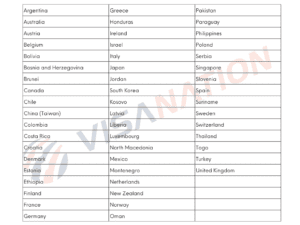Immigrants Without Passports Now Required to Undergo Facial Recognition Technology to Board Domestic Flights in the United States
Without any prior notice, the U.S. government has started requiring immigrants without passports, to submit to facial recognition technology in order to board domestic flights in the United States.
The Transportation Security Administration (TSA) recently confirmed this policy change, stating that migrants who do not have the proper photo identification, must submit to facial recognition technology, to verify their identify using Department of Homeland Security (DHS) records. Those who refuse to undergo facial recognition are turned away at the airport.
This change came to light after several migrants flying out of Texas were unexpectedly required to submit to the technology.
A spokesperson for the agency further confirmed that if TSA cannot match the person’s identity to DHS records, they will be denied boarding and entry to secure areas of an airport.
This has been alarming news for immigrants who must relocate to areas where they are pursuing their immigration claims, or where they have been scheduled to appear before immigration court.
It has also caused concern for immigrants who were blindsided by the change and spent their hard-earned money on nonrefundable domestic flights.
Prior to the change, immigrants could board domestic flights with any acceptable photo identification, such as a state-issued driver’s license, or documents issued by U.S. Customs and Border Protection (CBP).
To avoid encountering any problems, travelers should contact the Transportation Security Administration at the airport checkpoint location and/or a CBP Deferred Inspection site, to understand the boarding requirements for domestic flights.
For more information, please see our helpful links below.
Contact Us. If you would like to schedule a consultation, please text 619-569-1768 or call 619-819-9204.
Helpful Links
JOIN OUR NEW FACEBOOK GROUP
Need more immigration updates? We have created a new facebook group to address the impact of the new executive order and other changing developments related to COVID-19. Follow us there.
For other COVID 19 related immigration updates please visit our Immigration and COVID-19 Resource Center here.





